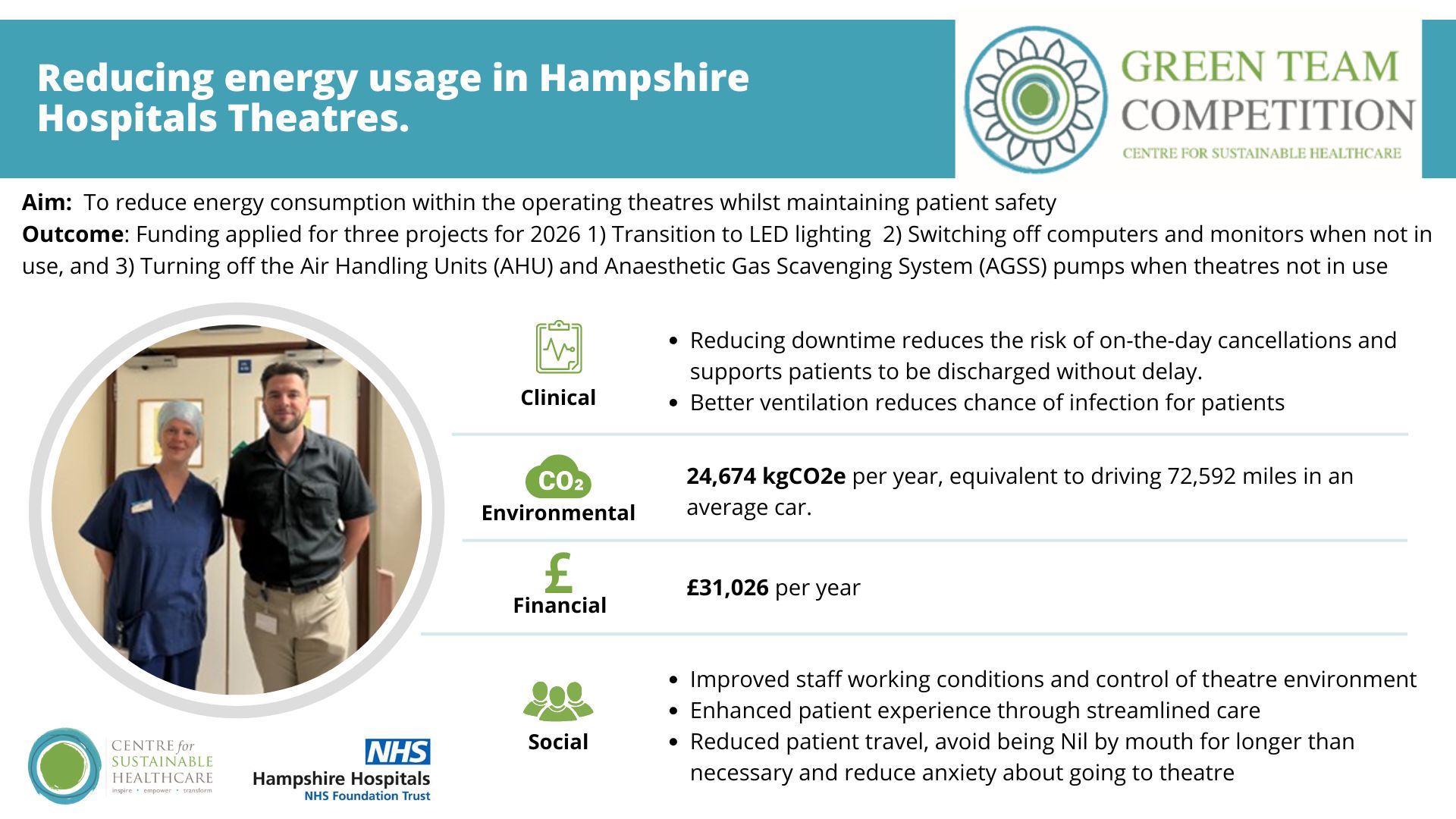Project completed as part of the 2025 Hampshire Hospitals Green Team Competition.

Project Team Members:
- Anja Templin (Clinical Matron, Theatres)
- Luke Hedges (Energy Manager)
Setting / Patient Group: Operating theatres, focusing on two theatres as the pilot site.
Issue:
Operating theatres are among the most energy-intensive areas in the NHS due to ventilation, HVAC systems, and specialised equipment. At HHFT, ageing infrastructure and limited capital investment have led to inefficient systems running continuously, even when theatres are not in use. This results in high energy consumption, increased carbon emissions, and significant financial costs. Poor energy management also contributes to backlog maintenance and risks patient care when failures cause delays.
Aim:
Reduce energy consumption in theatres to deliver measurable carbon and financial savings while maintaining patient safety and minimising downtime.
Intervention:
A full SMART Theatre retrofit was deemed unfeasible within the project timeframe, so the team focused on three practical measures: switching to LED lighting for improved energy efficiency, powering down computers and monitors when theatres are not in use, and turning off Air Handling Units (AHUs) and Anaesthetic Gas Scavenging System (AGSS) pumps during downtime. The Heathcote theatres were selected as they are unused from Friday afternoon until Monday morning, offering the greatest potential savings. Collaboration between estates and clinical teams ensured compliance with safety standards. Plans for installing direct-drive fans and programmed inverters were agreed, with full ventilation replacement scheduled for early 2026.
Outcomes:
- Environmental: Annual savings for two theatres: 100,547 kWh and 24,674 kgCO₂e, equivalent to driving 72,592 miles. Potential additional savings across seven more theatres: 86,359 kgCO₂e/year.
- Economic: Heathcote theatres: £26,142/year in energy savings. Additional savings if scaled: £91,498/year. Reduced downtime (222 minutes over 7 months) could save £4,884 in operational costs.
- Social: Improved working conditions and reduced cancellations enhance patient experience and staff efficiency. Patients benefit from fewer delays and single-visit procedures, reducing stress and emissions from travel.
Key Learning:
This project highlighted the complexity of improving energy management in live theatre environments and the importance of strong stakeholder engagement. Limitations included lack of submetering and time constraints, but collaboration and creative problem solving enabled progress. The experience reinforced that change takes time and requires persistence, clear communication, and integration into future refurbishments. Sharing lessons with the sustainability team and linking energy efficiency to all future theatre upgrades will help embed these improvements and maintain momentum.
Please log in or sign up to comment.